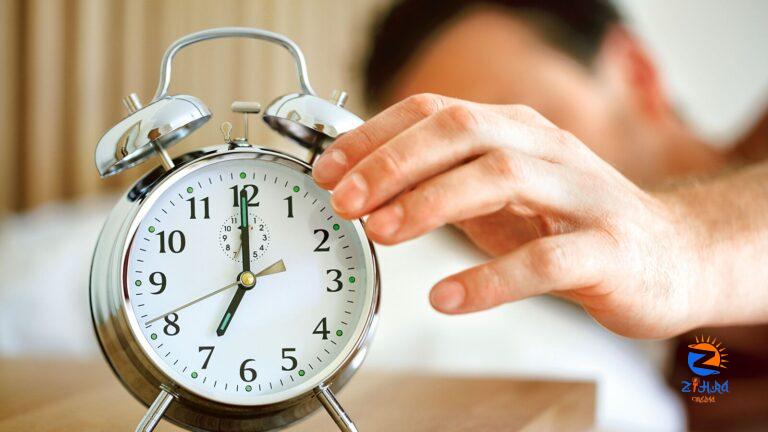
[ad_1]
Research suggests that waking abruptly to an alarm can cause a sudden increase in blood pressure (BP) and heart rate, potentially raising the risk of conditions like heart attacks or strokes. If one is using an alarm at all, the ‘snooze’ option can prove to be more helpful.
A study found that individuals forced awake by alarms had a morning BP that was 74 percent higher compared to those who woke up naturally.
The research further indicated that such an increase in BP was more pronounced with inadequate sleep. Abrupt awakening, triggered by a phone alarm, is known to have aggravated the issue more.
The sudden BP spike may activate the sympathetic nervous system, causing the heart to work harder and leading to symptoms such as fatigue, shortness of breath, anxiety, neck stiffness, and, in severe cases, nosebleeds and headaches.
The study also noted that adults with cardiovascular conditions might face more severe effects from this early-morning BP surge when they had insufficient sleep and were jolted awake.
Stress hormones on the rise
Additionally, sudden awakenings trigger stress hormones like cortisol and adrenaline, disrupting the body’s natural sleep cycle. This leads to “sleep inertia,” which can result in one feeling groggy and disoriented after waking up in the morning.
Furthermore, using alarms to wake up may negatively affect mental health and mood, as sleep is crucial for emotional regulation and mood stability, showed the study. Interruptions from alarms can also leave individuals feeling irritable, stressed, and anxious, potentially impacting heart health indirectly.
Snooze to be healthy
Meanwhile, another study by the Journal of Sleep Research has shown that hitting the snooze button to squeeze in an extra five or 10 minutes of sleep may actually be good for health.
The research showed that people who regularly pressed the snooze button lost only about six minutes of sleep per night, which did not affect their morning sleepiness or mood.
Healthy alternatives to alarms
Dr. Sudhir Kumar, a neurologist with the Apollo Hospitals in Hyderabad, shared some healthy alternatives to an alarm.
Here’s what one can do, stated the doctor on his social media account on X:
1. Avoid using alarm on a regular basis
2. Sleep adequately (7-8 hours) which allows one to naturally wake up from sleep.
3. Allowing natural light to come into your room, to reduce melatonin (sleep hormone) production in brain. This will enable you to wake up naturally.
4. Maintain a consistent sleep schedule, which enables a smooth functioning of the circadian rhythm, i.e, the sleep cycle of the body.
5. If at all alarms are to be used, a melodic or soothing sound, which are pleasant to listen to, would help keeping the health risks at bay.
Catch all the Business News, Market News, Breaking News Events and Latest News Updates on Live Mint. Download The Mint News App to get Daily Market Updates.
MoreLess
[ad_2]